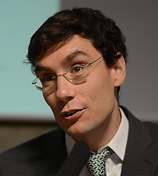
official juries
to elect the best portuguese film

| ana gandum
Ana Gandum (born in Évora, 1983) is an historian and photographer, whose main researches focus on the history of photographic images and material culture. She has made independent and academic texts and archival research, as well as exhibitions with photographs, objects, images and publications that not rarely involve vernacular photography.

| luís deltell
He’s a teacher at Universidad Complutense de Madrid (Spain) and a filmmaker. History of image, cinema and analysis of new information science technologies is his research field.

| paulo filipe monteiro
He’s a Full Professor at Universidade Nova de Lisboa, founder and coordinator o of the master’s in performing arts, coordinator of the Communication and Arts variant of the Masters and PhD in Communication Sciences. He also worked as an actor, director and was a playwright for dance performances. He wrote 8 feature films, a play called Área de Risco (1999 FCG), and directed the movies Amor Cego (2010) and Zeus (2017).
to elect the best film

| ana aitana fernandez
Ana Aitana Fernandez is a doctorate in Communication, a college professor and a film critic. She’s a member of the research group of CINEMA at Universidad Pompeu Fabra (Barcelona, Spain), and an online publication editor for Transit:cine y otros desvios, having collaborated on the book Motivos visuales del cine (Galaxia Gutenberg, 2016). She’s the producer and screenwriter of the movie Pasaia Bitartean (Irati Gorostidi, 2016).

| antónio costa
António Costa is the programmer of the Teatro do Campo Alegre (Porto, Portugal) and he’s a film programmer for the Leopardo Filmes and Medeia Filmes. He worked as a teacher and translator, and also collaboraborated in several publications, having worked for several years at the publisher Assírio & Alvim. For over a decade, he was the coordinator of the cultural program of Porto Book Fest, and is now the co-director of LEFFEST - Lisbon & Sintra Film Festival.

| bernardo vaz de castro
He was admitted at Universidade Nova de Lisboa in Communication Sciences where she specialized in Communication, Culture and Arts, being that his master's degree research was developed in this area as well. At the moment, he’s getting his PhD also in this area. Although his studies focused in literature, he cultivates a taste for cinema, having collaborated with some film festivals and being a critic on website À Pala de Walsh (http://www.apaladewalsh.com/).

| ana cabral martins
She was part of the recent Portuguese Women Directors project, from the Institute of Social Sciences of the University of Lisbon. With a PhD in Digital Media, she studies the contemporary Hollywood industry. Outside the academic world, she has written for national publications, such as Público or Electra, and international publications such as Beneficial Shock, among others.

| maria irene aparício
Maria Irene Aparício is an assistant professor at Science Communications Department | NOVA FCSH, and a researcher of CineLab-Ifilnova. Currently her research is focused on contemporary cinema. She has published several essays, namely on art perception and science, and presented a number of papers on issues related to film theory as well as cinema and philosophy. Her research interests include Film Theory and Practices, Film and Philosophy (e.g. Perception, Cognition, and Film Language); and Film History, Aesthetics and Memory (e.g. Space, Time, and Emotion), particularly in relation to Portuguese Cinema.


